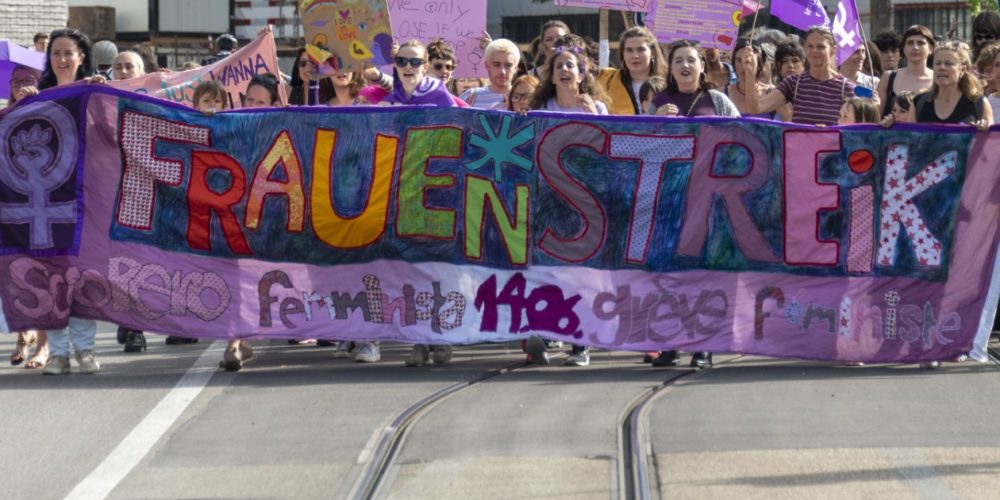On 14 June women throughout Switzerland took to the streets in a national women’s strike. It took place to coincide with negotiations at the International Labour Conference in Geneva on international rules for tackling violence and harassment at work.
Among their national demands in Switzerland, women called for equal pay, investment in the care sector, recognition of the real value of unpaid women’s work at home and in the community, and zero tolerance of gender-based violence.
In the wake of #MeToo, which highlighted the global scale of the violence and harassment that woman endure, these women also demanded effective measures to prevent both psychological and physical harassment.
While both women and men experience violence and harassment in work, unequal status and power relations in society result in women being more exposed to violence and harassment. Gender-based violence remains one of the most tolerated violations of workers’ human rights. According to statistics, 35 per cent of women over the age of fifteen have experienced sexual or physical violence at home, in their communities, or in the place of work.
Higher rates are consistently recorded in transport, health and social care, hotels and restaurants, the media and entertainment, agriculture, and in domestic work. Violence and harassment at work can come from managers, supervisors, fellow-workers, and customers. Abusive work-place practices also contribute to work-related stress, which is now at a record level.
Progress towards gender equality has stagnated over the past decade, and today the number of women who have experienced violence and harassment stands at 818 million. However, women are responding, and over the past twenty-four months they have led historic mobilisations around the world. From the extension of paid maternity leave in the Philippines to new legal measures to protect workers from the misuse of non-disclosure agreements in Britain, women and their unions have achieved real progress in the world of work.






